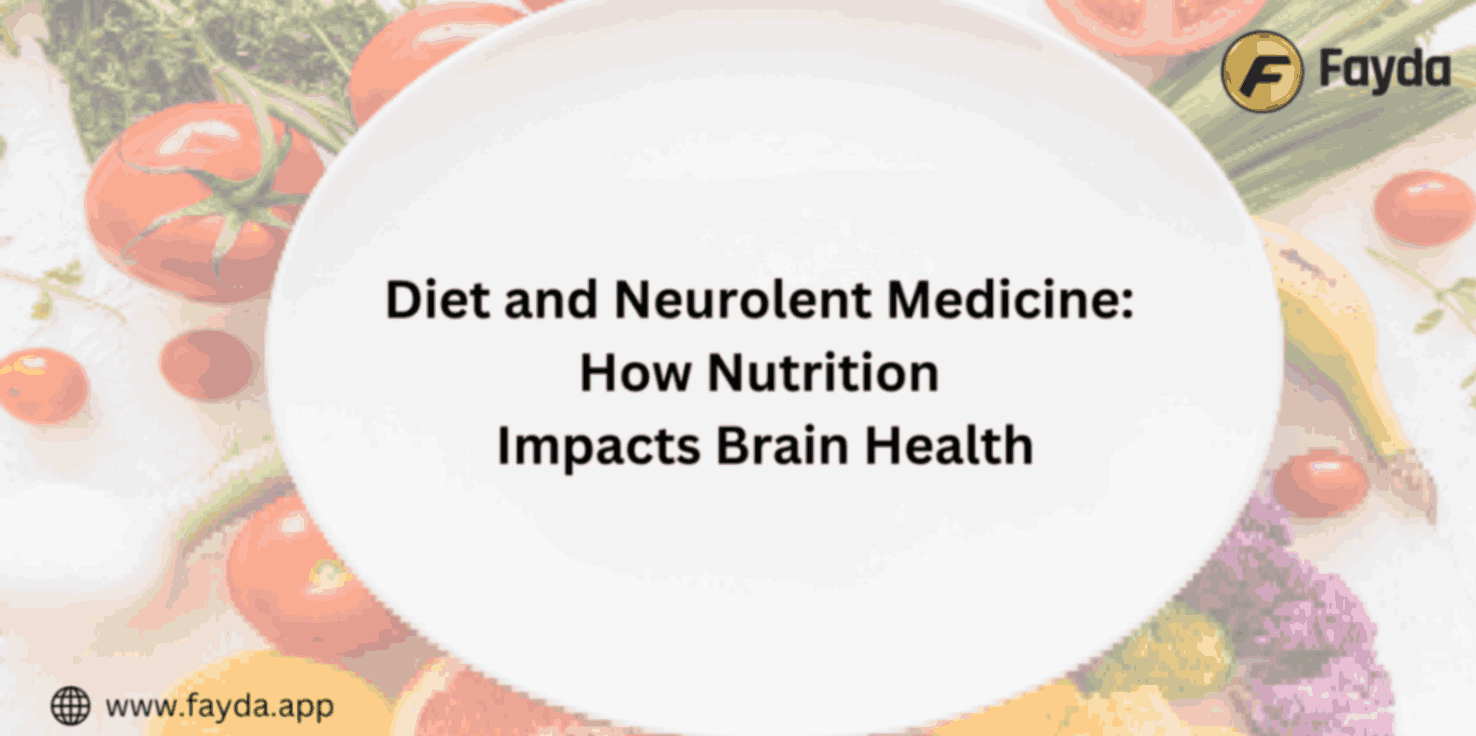Sep

Diet and Neurolent Medicine: How Nutrition Impacts Brain Health
The relationship between diet and brain health is a subject of growing interest and research. Proper nutrition plays a vital role in maintaining the health and functionality of our brain and nervous system. In this comprehensive guide, we will explore the intricate connection between diet and brain health, examining how the foods we consume impact cognitive function and how Neurolent Medicine can work in harmony with a balanced diet to promote optimal brain health.
The Brain's Nutritional Needs
The Powerhouse of the Brain
The human brain, weighing about three pounds on average, is a marvel of biological engineering. It is responsible for our thoughts, emotions, memories, and every bodily function. This incredible organ requires a constant supply of nutrients to function optimally.
Essential Nutrients for Brain Health
Several essential nutrients are vital for brain health, including:
- Omega-3 Fatty Acids: These fats, found in fatty fish, flaxseeds, and walnuts, are essential for brain cell structure and function.
- Antioxidants: Vitamins C and E, as well as other antioxidants found in fruits and vegetables, help protect the brain from oxidative stress.
- B Vitamins: B vitamins, particularly B6, B9 (folate), and B12, play a role in neurotransmitter production and overall brain health.
- Minerals: Minerals like magnesium, zinc, and iron are involved in various brain functions, including nerve transmission and oxygen delivery.
- Protein: Amino acids from protein sources are essential for the production of neurotransmitters, the brain's chemical messengers.
The Impact of Diet on Cognitive Function
The Gut-Brain Connection
Emerging research suggests that there is a strong connection between the gut and the brain, known as the gut-brain axis. The foods we consume can influence the composition of our gut microbiota, which, in turn, can affect cognitive function and mood.
Diet and Cognitive Decline
Studies have shown that a diet rich in whole foods, including fruits, vegetables, whole grains, and lean proteins, is associated with a reduced risk of cognitive decline and neurodegenerative diseases like Alzheimer's and Parkinson's.
The Role of Sugar and Processed Foods
Excessive consumption of added sugars and highly processed foods has been linked to cognitive impairments, including memory deficits and a higher risk of cognitive decline. Such diets can also lead to inflammation, which is detrimental to brain health.
The Mediterranean Diet: A Brain-Boosting Approach
The Mediterranean diet, characterized by an abundance of fruits, vegetables, whole grains, lean proteins, and healthy fats like olive oil, has gained attention for its potential to promote brain health and reduce the risk of cognitive decline.
Neurolent Medicine and Nutrition
What Is Neurolent Medicine?
Neurolent Medicine is a cutting-edge field focused on developing treatments for neurological disorders. It encompasses various therapies, including neuroprotection, neuroregeneration, neuromodulation, and neuropharmacology. Nutrition plays a crucial role in supporting the effectiveness of Neurolent Medicine.
The Synergy of Nutrition and Neurolent Medicine
The combination of proper nutrition and Neurolent Medicine can have a synergistic effect on brain health. Nutrient-rich foods provide the raw materials necessary for brain repair and function, while Neurolent Medicine can target specific neurological conditions.
Personalized Approaches
Neurolent Medicine may incorporate personalized treatments that consider an individual's nutritional needs and genetic factors. This personalized approach ensures that the treatment aligns with the patient's unique profile and health goals.
Nutrients That Support Neurolent Medicine
Omega-3 Fatty Acids
Omega-3 fatty acids, found in fatty fish (e.g., salmon, mackerel), flaxseeds, and walnuts, have anti-inflammatory properties and support neural cell structure and function. They can enhance the effectiveness of Neurolent Medicine treatments aimed at neuroprotection and neuroregeneration.
Antioxidants
Antioxidants like vitamins C and E, as well as compounds in colorful fruits and vegetables, help protect the brain from oxidative stress. This protection is essential in maintaining the overall health of brain cells and supporting the success of Neurolent Medicine therapies.
B Vitamins
B vitamins, including B6, B9 (folate), and B12, play a significant role in neurotransmitter synthesis and overall brain health. These vitamins can complement Neurolent Medicine treatments focused on improving cognitive function and mood.
Minerals
Minerals like magnesium, zinc, and iron are essential for various brain functions, including nerve transmission, oxygen delivery, and overall cellular health. Ensuring an adequate intake of these minerals can optimize the benefits of Neurolent Medicine therapies.
The Future of Nutritional Integration with Neurolent Medicine
Advancements in Personalized Nutrition
The future of Neurolent Medicine will likely involve even more personalized nutrition approaches. Genetic profiling and advanced diagnostics may enable healthcare providers to recommend precise diets that enhance the effectiveness of specific Neurolent treatments.
Targeted Nutrient Delivery
Innovations in targeted nutrient delivery systems could be developed to enhance the absorption of specific nutrients required for brain health, further supporting the goals of Neurolent Medicine.
Patient Education and Collaboration
As the fields of nutrition and Neurolent Medicine continue to advance, patient education will be crucial. Patients can actively collaborate with healthcare providers to optimize their nutritional intake and Neurolent Medicine treatment plans.
Conclusion
The connection between diet and brain health is undeniable. Proper nutrition provides the foundation for a healthy brain, while Neurolent Medicine offers innovative treatments for neurological disorders. The synergy between these two realms holds tremendous potential for promoting optimal brain health, enhancing cognitive function, and reducing the risk of neurodegenerative diseases. As we look to the future, personalized approaches to nutrition and Neurolent Medicine will likely play an increasingly significant role in improving brain health and overall well-being.


